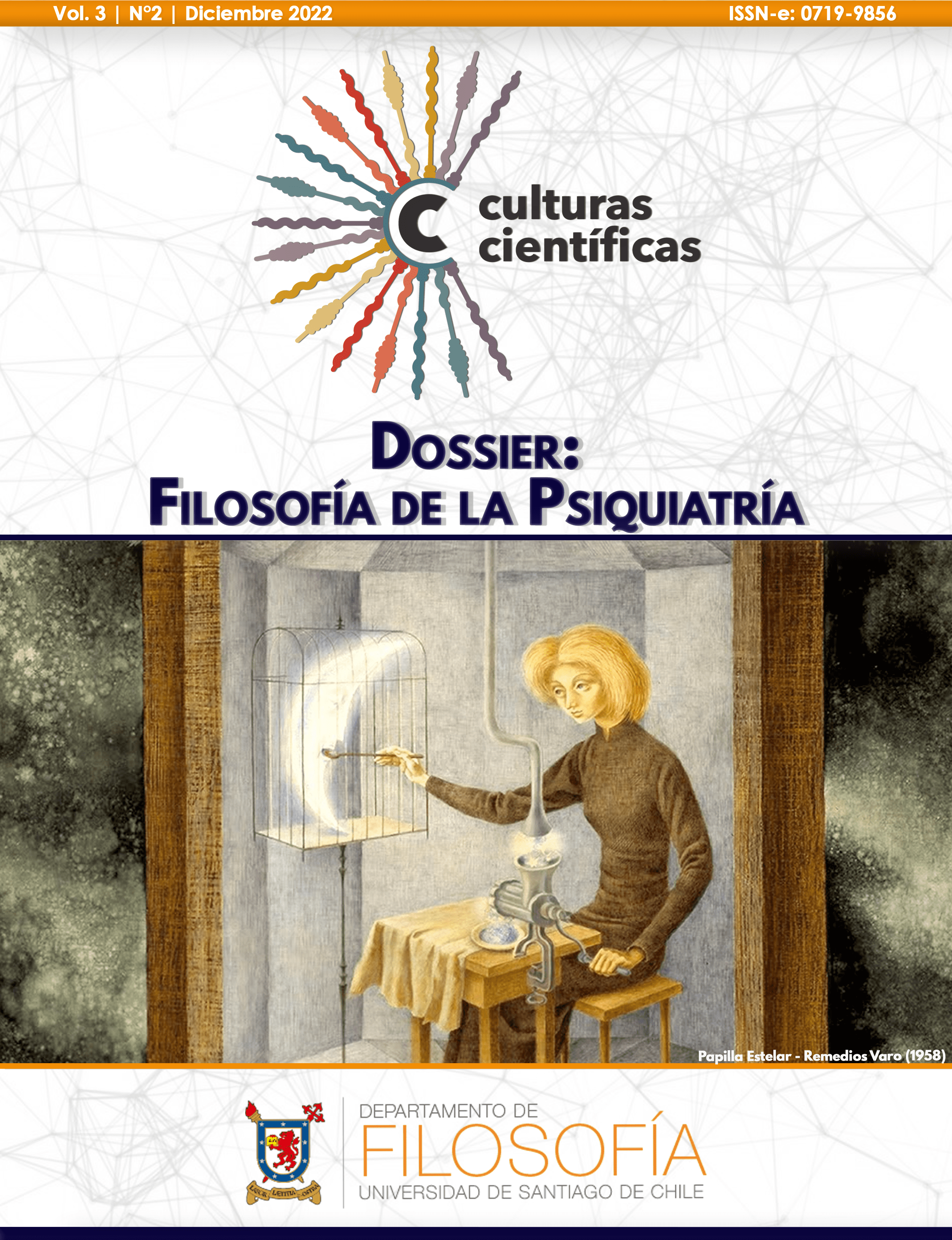Towards An Aberrant Logic of the Aberrant
Thinking Madness From Literature
DOI:
https://doi.org/10.35588/cc.v3i2.5592Keywords:
Deleuze, Guattari, Kafka, Aberrant movements, ProustAbstract
A vision of epistemology is presented as a logic of thinking and it is taken to an elaboration of clinical practice as a logic of mental illness. This proposal is based on the approaches of Deleuze and Guattari to mental illness and to literature. As well, we will take as a starting point the notion of aberrant movements, elaborated by David Lapoujade when he reads Deleuze's work. These movements will be understood as those that occur in the relationship between different heterogeneous terms, when their heterogeneity is maintained. This is linked to the invitation that Lapoujade himself makes to understand Deleuze's work as the development of irrational logics. We will try to think, from there, a logic of madness and mental illness based, in turn, on a logic of the literary works of Proust and Kafka, as read by Deleuze and Guattari themselves. In relation to this, we highlight, on the one hand, a certain logic of open and non-totalizable sets, that these last authors find in Proust's work and, on the other hand, a logic of contiguity that they find in Kafka's work. At the same time, common points are established between these two readings, regarding the schizoid as something that exceeds the meaning in discourse, as well as the normativity of behavior. Likewise, at different points in the paper, we will deduce the implications that these ways of thinking have for a clinical practice in relation to subjective modes of existence that escape what is established in the social field. In that way, we join an epistemological approach with a political one.
Downloads
References
Brod, M. (1947). The Biography of Franz Kafka. London: Secker.
Deleuze, G. (1967). Le Froid et le Cruel. Présentation de Sacher-Masoch. Paris: Les Éditions de Minuit.
Deleuze, G. (1969). Logique du Sens. Paris: Éditions de Minuit .
Deleuze, G. (1983). Cinéma 1. L'Image-Mouvement. Paris: Minuit .
Deleuze, G., & Guattari, F. (1972). L'Anti-Oedipe. Capitalisme et Schizophrénie . Paris: Les Éditions de Minuit .
Deleuze, G. y Guattari, F. (1975). Kafka. Pour une littérature mineure . Paris: Minuit .
Durán, C. (2021a). Un continuo hecho de contigüidades: Kafka responde a Leibniz. En S. Amarilla, G. Bertazzo y G. Santayana (Eds.). Las potencias del continuo. Deleuze: Ontología práctica 3. (pp. 183-198). Buenos Aires: RAGIF Ediciones.
Durán, C. (2021b). La Habitación Contigua. Kafka, el Psicoanálisis y el Laberinto de la Inmanencia. Revista Chilena de Literatura, (103), 145-166. https://revistaliteratura.uchile.cl/index.php/RCL/article/view/63986
Lapoujade, D. (2014). Deleuze, Les Mouvements Aberrants. Paris: Minuit.
Proust, M. (1946). À la recherche du temps perdu. Paris: Gallimard.
Downloads
Submitted
2022-07-06Published
Issue
Section
License
Copyright (c) 2022 Tomás Flores Estay

This work is licensed under a Creative Commons Attribution 4.0 International License.











